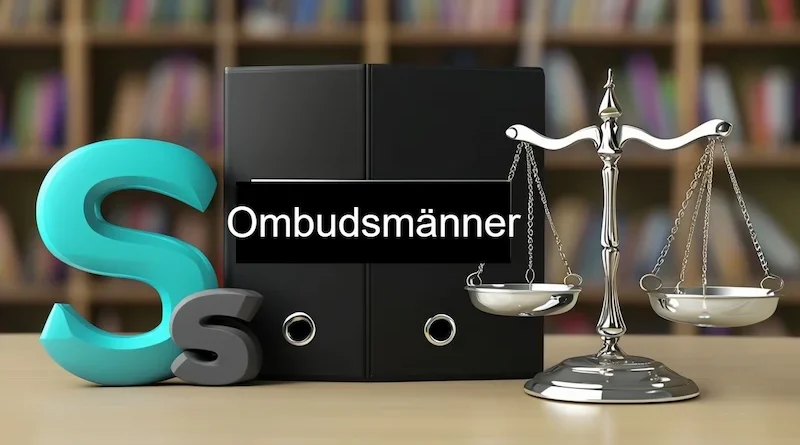Understanding Ombudsmänner: Their Role, Impact in Public and Private Sectors
Introduction: Who Are Ombudsmänner?
The term Ombudsmänner (plural of “Ombudsmann” in German) refers to individuals tasked with investigating and resolving complaints from the public or employees about institutions, whether governmental or private. These officials operate independently and impartially, offering an alternative to legal action by aiming for fair resolution of disputes. The position originated in Sweden in the 18th century and has since expanded across various legal and administrative systems globally.
Ombudsmänner are vital for strengthening transparency, enforcing fair treatment, and upholding individual rights. They act as intermediaries, ensuring institutions remain accountable while offering the public a secure channel for voicing grievances.
Historical Roots and Global Adoption
The office of the Ombudsman was first formalized in Sweden in 1809, designed to supervise government actions. Over time, countries across Europe, Asia, and the Americas adopted variations of this model. In Germany, “Ombudsmann” became a recognized role within various sectors, especially financial, military, and administrative structures. International organizations such as the European Union and the United Nations also use ombuds structures to safeguard integrity and rights.
Functional Classification of Ombudsmänner
1. Public Sector Ombudsmänner
These officials are often appointed by parliament or government bodies to address public grievances against state institutions. They operate independently and investigate complaints concerning maladministration, delays, abuse of power, or negligence.
Examples:
- Parliamentary Ombudsmann: Oversees public administration and ensures that officials respect legal and constitutional boundaries.
- Wehrbeauftragter: Appointed in Germany to handle complaints from military personnel.
2. Corporate and Organizational Ombudsmänner
In large corporations or universities, Ombudsmänner manage internal concerns such as harassment, discrimination, or unethical conduct. They operate with confidentiality, offering informal and neutral avenues for resolution.
Features:
- They do not impose binding decisions.
- They often assist with early conflict resolution.
- They are useful for whistleblower protection.
3. Specialized Industry Ombuds
Certain industries, like finance or insurance, employ dedicated ombudspersons to handle customer disputes without the need for court intervention.
Germany Examples:
- Versicherungsombudsmann e.V.: An independent association offering arbitration for insurance disputes.
- Banking Ombudsmann: Mediates complaints between customers and banks.
Legal Mandates and Powers
Ombudsmänner derive their authority from legislative frameworks, institutional charters, or international treaties. Though their powers vary, most possess the following abilities:
- Investigative Authority: To collect documents, interview staff, and analyze administrative decisions.
- Recommending Reforms: Offering structured solutions or policy recommendations.
- Public Reporting: Publishing findings in annual or special reports.
- Facilitation over Enforcement: Many cannot enforce decisions but rely on moral authority and public pressure.
In Germany, sector-specific Ombudsmänner are often empowered to offer binding mediation, particularly in insurance or banking disputes.
The Case of the European Ombudsman
The European Ombudsman, headquartered in Strasbourg and Brussels, serves EU citizens and residents. The office investigates complaints against EU institutions, bodies, and agencies.
Functions:
- Handles cases related to administrative transparency, fairness, and service delivery.
- Accepts complaints from individuals, companies, and associations.
- Publishes annual reports on case statistics and institutional cooperation.
Operational Principles
Regardless of their domain, Ombudsmänner share common operational values:
- Independence: Free from institutional control.
- Neutrality: Unbiased dispute resolution.
- Confidentiality: Protects the privacy of complainants.
- Accessibility: Open to all individuals without legal barriers.
- Non-retaliation: Prevents punishment for those filing complaints.
Social and Institutional Impact
1. Public Trust and Accountability
By ensuring fairness in administrative actions, Ombudsmänner help restore public confidence in institutions. They often act as a bridge between bureaucracies and citizens.
2. Conflict Mitigation
Their presence reduces litigation and administrative deadlocks. This is particularly valuable in high-volume complaint areas such as consumer protection or employment disputes.
3. Systemic Reform
Their findings often highlight structural flaws, leading to broader institutional reforms, improved transparency protocols, and procedural updates.
Challenges Faced by Ombudsmänner
Despite their value, these officials encounter various obstacles:
- Limited Enforcement Powers: Many lack the authority to impose binding rulings.
- Resource Constraints: Underfunding hampers investigative depth.
- Public Awareness Gap: Many citizens are unaware of the ombud mechanism.
- Institutional Resistance: Organizations may ignore or delay cooperation.
Digital Evolution: Ombuds 2.0
The digital age is reshaping how Ombudsmänner operate:
- Online Portals: Many now accept e-complaints, making access easier.
- AI Tools: Emerging systems assist in sorting and prioritizing complaints.
- Data Analysis: Aggregated data is used to detect patterns in maladministration.
Comparative Models Worldwide
- UK Parliamentary and Health Service Ombudsman: Investigates unresolved complaints about public services.
- U.S. Office of the Ombudsman: Found in state governments, universities, and corporations.
- Canadian Ombuds Services: Offers services across finance, telecom, and public administration.
The German Model in Focus
Germany demonstrates a layered ombud system with:
- Statutory Authorities: Public sector ombuds with fixed mandates.
- Voluntary Bodies: Institutions like the German Banking Ombudsman.
- Hybrid Systems: Collaboration between civil society and state functions.
Conclusion
Ombudsmänner, whether in public or private institutions, act as vital instruments of fairness and oversight. Their evolving roles continue to adapt to the complexities of modern administration and governance. By resolving disputes, recommending policy changes, and defending citizen rights, they bolster both democratic accountability and institutional responsiveness.
In a time when administrative complexity and systemic mistrust are on the rise, the institution of Ombudsmänner stands out as a dependable mechanism to ensure justice, transparency, and trust in governance.
Visit the rest of the site for more interesting and useful articles.

